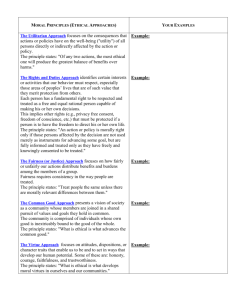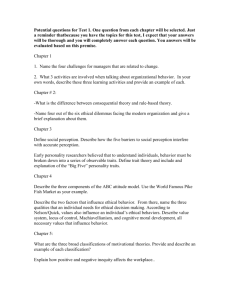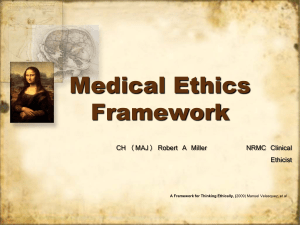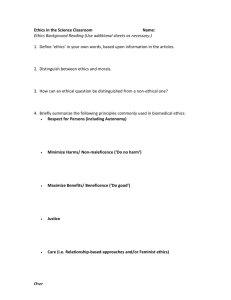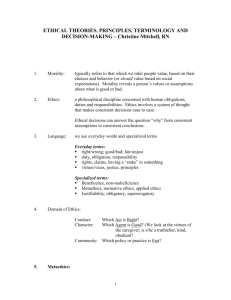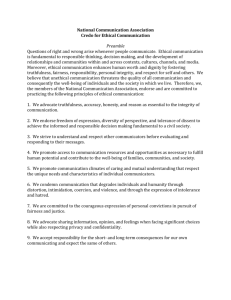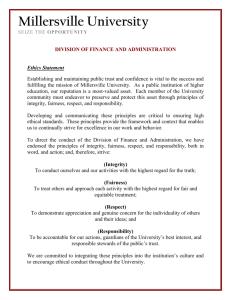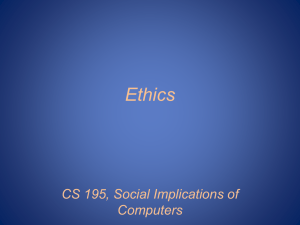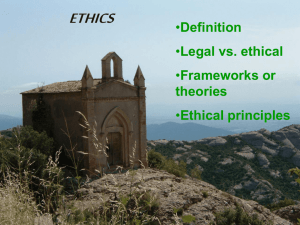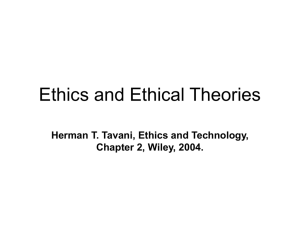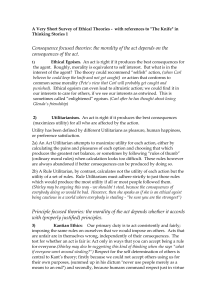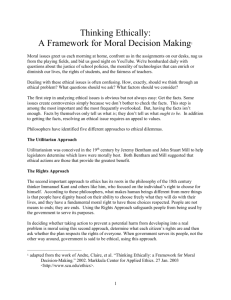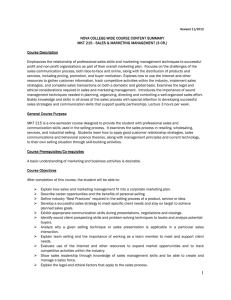Framework for Making Morally Correct Choices
advertisement
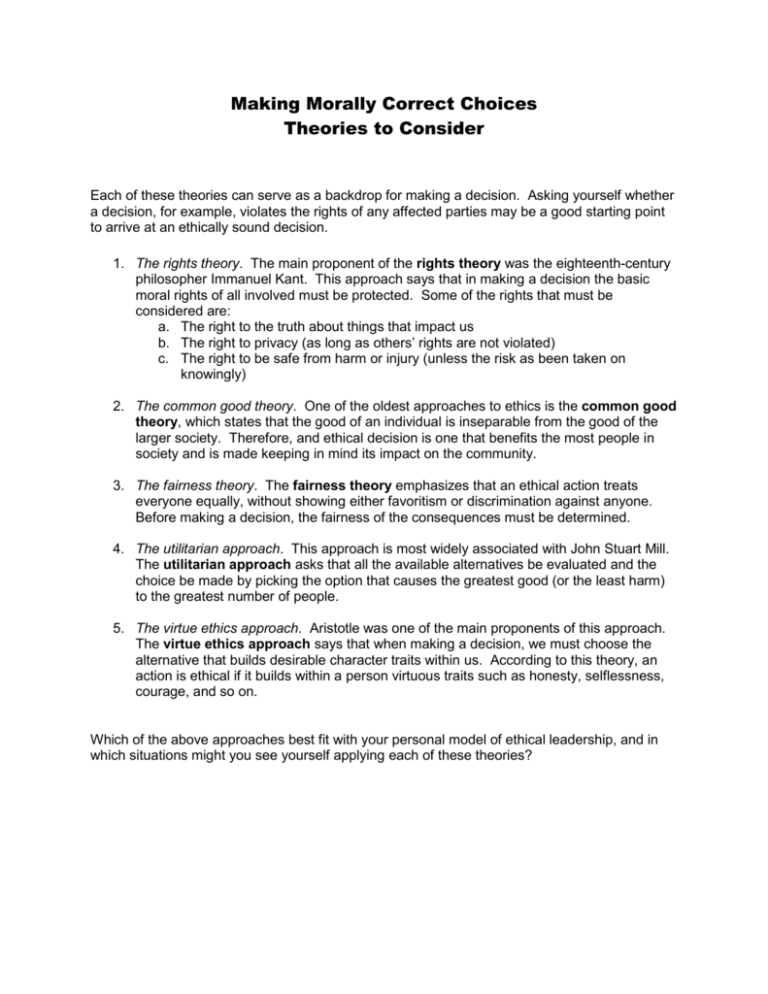
Making Morally Correct Choices Theories to Consider Each of these theories can serve as a backdrop for making a decision. Asking yourself whether a decision, for example, violates the rights of any affected parties may be a good starting point to arrive at an ethically sound decision. 1. The rights theory. The main proponent of the rights theory was the eighteenth-century philosopher Immanuel Kant. This approach says that in making a decision the basic moral rights of all involved must be protected. Some of the rights that must be considered are: a. The right to the truth about things that impact us b. The right to privacy (as long as others’ rights are not violated) c. The right to be safe from harm or injury (unless the risk as been taken on knowingly) 2. The common good theory. One of the oldest approaches to ethics is the common good theory, which states that the good of an individual is inseparable from the good of the larger society. Therefore, and ethical decision is one that benefits the most people in society and is made keeping in mind its impact on the community. 3. The fairness theory. The fairness theory emphasizes that an ethical action treats everyone equally, without showing either favoritism or discrimination against anyone. Before making a decision, the fairness of the consequences must be determined. 4. The utilitarian approach. This approach is most widely associated with John Stuart Mill. The utilitarian approach asks that all the available alternatives be evaluated and the choice be made by picking the option that causes the greatest good (or the least harm) to the greatest number of people. 5. The virtue ethics approach. Aristotle was one of the main proponents of this approach. The virtue ethics approach says that when making a decision, we must choose the alternative that builds desirable character traits within us. According to this theory, an action is ethical if it builds within a person virtuous traits such as honesty, selflessness, courage, and so on. Which of the above approaches best fit with your personal model of ethical leadership, and in which situations might you see yourself applying each of these theories?




